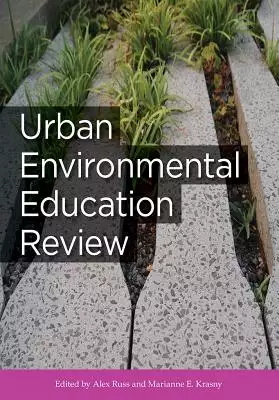The barnett korea的問題,透過圖書和論文來找解法和答案更準確安心。 我們查出實價登入價格、格局平面圖和買賣資訊
The barnett korea的問題,我們搜遍了碩博士論文和台灣出版的書籍,推薦Russ, Alex (EDT)/ Krasny, Marianne E. (EDT)寫的 Urban Environmental Education Review 可以從中找到所需的評價。
中國文化大學 行銷碩士學位學程碩士班 許嘉霖所指導 吳孟哲的 線上品牌社群特徵對於消費者購買意圖與口碑意圖之影響‐顧客參與為中介變數和線上品牌社群類型為干擾變數 (2021),提出The barnett korea關鍵因素是什麼,來自於線上品牌社群特徵、線上品牌社群類型、顧客參與、購買意圖、口碑意圖。
而第二篇論文淡江大學 產業經濟學系博士班 池秉聰所指導 許汶任的 三篇有關博弈之機率、隨機過程與數學之論文集 (2021),提出因為有 優勢玩家、VIP優惠、模擬、隨機運動、娛樂場管理的重點而找出了 The barnett korea的解答。
Urban Environmental Education Review

為了解決The barnett korea 的問題,作者Russ, Alex (EDT)/ Krasny, Marianne E. (EDT) 這樣論述:
Urban Environmental Education Review explores how environmental education can contribute to urban sustainability. Urban environmental education includes any practices that create learning opportunities to foster individual and community well-being and environmental quality in cities. It fosters nove
l educational approaches and helps debunk common assumptions that cities are ecologically barren and that city people don't care for, or need, urban nature or a healthy environment.Topics in Urban Environmental Education Review range from the urban context to theoretical underpinnings, educational s
ettings, participants, and educational approaches in urban environmental education. Chapters integrate research and practice to help aspiring and practicing environmental educators, urban planners, and other environmental leaders achieve their goals in terms of education, youth and community develop
ment, and environmental quality in cities.The ten-essay series Urban EE Essays, excerpted from Urban Environmental Education Review, may be found here: naaee.org/eepro/resources/urban-ee-essays. These essays explore various perspectives on urban environmental education and may be reprinted/reproduce
d only with permission from Cornell University Press.ContributorsJennifer D. Adams, Brooklyn College, CUNY; Olivia M. Aguilar, Denison University; Shorna B. Allred, Cornell University; Daniel Fonseca de Andrade, Federal University of the State of Rio de Janeiro; Scott Ashmann, University of Wisconsi
n-Green Bay; Dave Barbier, University of Wisconsin-Stevens Point; M'Lis Bartlett, University of Michigan; Michael Barnett, Boston College; Simon Beames, University of Edinburgh; Chew-Hung Chang, Nanyang Technological University; Tzuchau Chang, Taiwan Normal University; Louise Chawla, University of C
olorado Boulder; Lewis Ting On Cheung, Hong Kong Institute of Education; Belinda Chin, City of Seattle Parks and Recreation; Polly L. Knowlton Cockett, Grassroutes Ethnoecological Association; Laura B. Cole, University of Missouri; Jason Corwin, Seneca Nation; Amy Cutter-Mackenzie, Southern Cross Un
iversity; Maria Daskolia, National and Kapodistrian University of Athens; Jacqueline Davis-Manigaulte, Cornell University Cooperative Extension; Victoria L. Derr, California State University, Monterey Bay; Giuliana Dettori, National Research Council of Italy; Bryce B. DuBois, Cornell University; Jan
et E. Dyment, University of Tasmania; Johanna Ekne, Ekne Ecology; Thomas Elmqvist, Stockholm University; Johan Enqvist, Stockholm University; Mariona Espinet, Autonomous University of Barcelona; Ellen Field, James Cook University; Rebecca L. Franzen, University of Wisconsin-Stevens Point; David A. G
reenwood, Lakehead University; Randolph Haluza-DeLay, King's University, Edmonton; Marna Hauk, Prescott College and Institute for Earth Regenerative Studies; Joe E. Heimlich, The Ohio State University; Alexander Hellquist, Uppsala University; Cecilia P. Herzog, Pontifical Catholic University of Rio
de Janeiro; Yu Huang, Beijing Normal University; Hilary Inwood, University of Toronto; Marianna Kalaitsidaki, University of Crete; Matthew S. Kaplan, Pennsylvania State University; Chankook Kim, Korea National University of Education; Hiromi Kobori, Tokyo City University; Cecil Konijnendijk van den
Bosch, University of British Columbia; Jada Renee Koushik, University of Saskatchewan; Marianne E. Krasny, Cornell University; Shelby Gull Laird, Stephen F. Austin State University; John Chi-Kin Lee, Hong Kong Institute of Education; Raul P. Lejano, New York University; Mary Leou, New York Universit
y; Kendra Liddicoat, University of Wisconsin-Stevens Point; Shih-Tsen Nike Liu, University of Taipei; David Maddox, The Nature of Cities; Karen Malone, Western Sydney University; Mapula Priscilla Masilela, Rhodes University; Elizabeth P. McCann, Antioch University New England; Marcia McKenzie, Unive
rsity of Saskatchewan; Timon McPhearson, The New School; Sanskriti Menon, Centre for Environment Education; Denise Mitten, Prescott College; Martha C. Monroe, University of Florida; Timon McPhearson, The New School; Mutizwa Mukute, Rhodes University; Harini Nagendra, Azim Premji University; John Nzi
ra, Ukuvuna-Urban Farming Projects; Lausanne Olvitt, Rhodes University; Ill ne Pevec, Fat City Farmers; Felix Pohl, Independent Sustainability Consultancy; Andrew Rudd, UN-Habitat; Alex Russ (Alexey Kudryavtsev), Cornell University; Tania M. Schusler, Loyola University Chicago; Soul Shava, Universit
y of South Africa; Philip Silva, Cornell University; Nonyameko Zintle Songqwaru, Rhodes University; Marc J. Stern, Virginia Polytechnic Institute and State University; Robert B. Stevenson, James Cook University; Erika S. Svendsen, USDA Forest Service; Geok Chin Ivy Tan, Nanyang Technological Univers
ity; Cynthia Thomashow, IslandWood and Antioch University Seattle; Mitchell Thomashow, Philanthropy Northwest; Arjen E. J. Wals, Wageningen University; Kumara S. Ward, Western Sydney University; Robert Withrow-Clark, Butte College; Wanglin Yan, Keio University Alex Russ is an online course instruc
tor in the Department of Natural Resources at Cornell University. Marianne E. Krasny is Professor in the Department of Natural Resources at Cornell University. She is first author of Civic Ecology: Adaptation and Transformation from the Ground Up.
線上品牌社群特徵對於消費者購買意圖與口碑意圖之影響‐顧客參與為中介變數和線上品牌社群類型為干擾變數
為了解決The barnett korea 的問題,作者吳孟哲 這樣論述:
近年來人們對環保及節能減碳的議題日漸重視,電動機車的出現即為一例,其為傳統機車產業帶來新的影響。本研究以刺激-有機體-反應(stimulus-organism-response; S-O-R)架構為基礎,探討電動機車線上品牌社群之特徵對顧客參與是否會有正向影響,以及顧客參與對購買意圖與口碑意圖是否有正向影響,而在 本研究中,顧客參與於電動機車線上品牌社群之特徵及購買意圖與口碑意圖之間之中介效果亦被探討。此外,本研究亦對線上品牌社群類型於線上品牌社群特徵與顧客參與之間之干擾效果進行探討。本研究以網路問卷的方式蒐集資料,研究對象為有瀏覽過gogoro線上品牌社群之消費者,最後收集之有效問卷
份數為291份,並使用結構方程式模型檢定所發展的假說及模式。結果發現線上品牌社群之特徵(即資訊品質、系統品質、互動性)對顧客參與有顯著正向影響,而顧客參與對購買意圖與口碑意圖亦有顯著正向影響。而研究結果亦進一步顯示顧客參與於線上品牌社群特徵(資訊品質)與購買意圖與口碑意圖之間具有中介效果,並且亦進一步發現線上品牌社群類型於系統品質與顧客參與之間具有干擾效果。
三篇有關博弈之機率、隨機過程與數學之論文集
為了解決The barnett korea 的問題,作者許汶任 這樣論述:
本論文集為賭場(casino)經營及優勢玩家(advantage players, APs)的一系列研究,第一篇探討優勢玩家(之後簡稱APs)如何透過賭場提供的優惠合約獲利,研究採用模擬搭配實際賭場優惠合約內容,並提出賭場經營困境及解套方法;第二篇回顧了繼菲律賓賭場在提供的優惠合約導致巨額損失之後,透過國際比較,指出下一個被APs攻擊國家為何?;第三篇探討,賭場在吸引顧客的優惠合約與承擔APs套利風險之間的兩難,提出模擬結果以及解方。以下我們詳述各篇的內容綱要。第一篇:本篇文章闡述,優勢玩家(APs)或也可稱為職業玩家,在賭場的獲利機制。首先,賭場做為莊家,所有的賭局一定有利於莊家,透過長期
累積的莊家優勢,可以確保賭場正常經營。然而,隨著民眾的知識水準提高,大部分人都知道十賭九輸的道理,因此,從賭場的財務結構來看,資金的收入來源已經逐漸由賭桌(table)項目,轉移到其他購物與休閒娛樂項目。為了吸引源源不絕的賭客,特別是一擲千金的大客戶,賭場提出各式讓利的措施,只要投注的資金達到門檻即可享有該讓利優惠,也因此逆轉了莊家優勢成為專業玩家的優勢,透過數學的推理,只要嚴格遵守各種下注及停利條件,經由大量的人海戰術,即可扳倒莊家成為玩家優勢,懂得使用此戰略的玩家通常為一團隊,我們就稱之為優勢玩家(APs)。不同的賭博(gambling)項目適用的條件都不盡相同,主在於每下注一塊錢,期望損
失的金額大小與標準差的不同,以此來測量賭博項目的波動程度,當波動程度越大的情況之下,APs要準備的資金也會相對比較多,資本優勢顯得更重要。因此,職業玩家能在賭場套利,主要有兩個方法:一是賭場所提供的優惠合約,第二個是透過技術,如算牌(card counting)的方式,找出規律在即將有利時巨額投注,扭轉期望值劣勢。本研究主要著重在於前者,僅利用賭場提供的優惠。雖然過程中,期望值為負;但因為賭場的額外優惠,導致此額外的優惠大於賭博項目本身的期望值,使整個賭博項目的莊家優勢扭轉為玩家優勢。相關的數學基礎,我們使用隨機過程模型的推導計算出最佳的下注及出場點,搭配模擬說明優勢玩家在參與賭博項目的過程中
如何利用賭場的優惠合約獲利。並且進一步說明,所需要的啟動資金。第二篇:本篇文章,根據國際上賭場提供給貴賓(very important person, VIP)的優惠條件,做國際性的比較,探討美國、韓國以及菲律賓。目前,從菲律賓的賭場已取消提供VIP優惠的教訓。此舉證明強力促銷爭取獲利的潛在風險,向全球賭場管理層提供了一個示警的信號。賭場在設計VIP合約的過程中,須要注意合約的相關金額以及所提供賭博項目的下注上限,這個比例如果沒有設計好,將會造成賭場的損失。本文運用隨機過程模型,進行一些變化,使得職業玩家在套利過程中不容易被賭場識破,更能夠隱藏其身份,持續套利。我們針對VIP合約以及賭博項目的
管理,做出了下列建議,美國賭場管理的穩健性是最好的,其次是韓國,而菲律賓則是曝露在最大的風險之下。因此,在韓國或類似菲律賓的其他國家的VIP優惠,所產生的運營風險,可能成為APs攻擊的下一個目。第三篇:本篇旨在解釋並分析近年來合法賭場的運營部門收入急劇下降的主要原因。APs在賭場獲利,主要有兩個方法:一個是賭場所提供的優惠,第二個是透過算牌方式。我們證明並披露了,職業玩家或是APs如何合法地,應用隨機過程、數學和模擬,來利用賭場提供的折扣優惠。本詳細展示了,APs如何利用,賭場提供給VIP折扣優惠並長期從賭場中獲利。此外,基於經驗證據,我們針對賭場管理所面臨的兩難,提出了一些建議方案。這些方案
,可以有效減少APs的優勢,確保賭場運營部門的收益。若賭場運營部門業務穩定和恢復活力,無疑也會對酒店客房、飲料、零售和其他設施的收益,產生協同效應。換句話說,賭場型酒店的盈利能力得以提高。